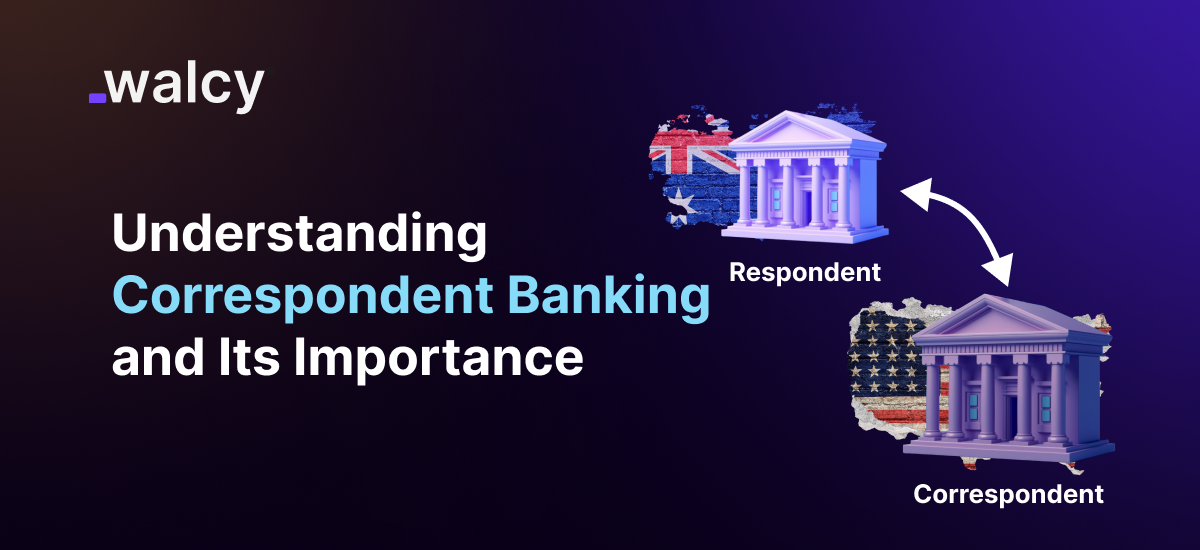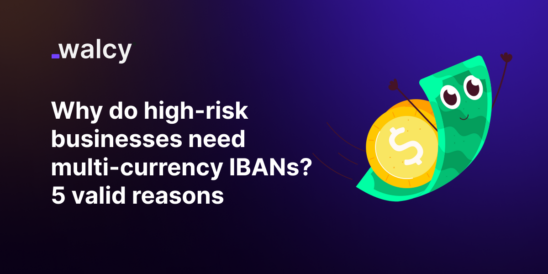In today’s interdependent world, financial institutions and businesses rely extensively on smooth cross-border transactions. Correspondent banking lies at the heart of these international financial activities a system whereby banks in different countries can make and receive payments. This article aims to take a closer look at what correspondent banking is, how it works, and why it remains crucial for international settlements.
What is Correspondent Banking?
Correspondingly, correspondent banking is the facility whereby one bank, the correspondent, holds deposits for or makes payments on behalf of a respondent bank in another location. This relationship is a key factor in facilitating financial institutions, particularly those without direct presence overseas, to enter into transactions and offer services anywhere in the world.
The correspondent account, also called a nostro account meaning ‘our’ account when held by the account-holding bank, or a vostro account ‘your’ account when used by the account-using bank-lies at the very core of correspondent banking. Correspondent accounts allow banks to transfer funds, settle trades, and provide foreign exchange services without maintaining branches in every country.
How Does Correspondent Banking Work?
Correspondingly, in correspondence banking among different banks, the involvement of an intermediary bank is common in many cases. The general flow of how the process works is as follows:
Intermediary Bank: This would mean that in cases of cross-border payments when Bank A and Bank B do not have a direct partnership, there comes an intermediary bank to bridge the gap. It keeps accounts for both banks that are involved, hence allowing it to move funds between them. In this case, the intermediary bank allows money to safely move from one country to another, even when the banks are at odds with each other.
Correspondent Account Services: It provides for special accounts by name, nostro-ours, and vostro-yours accounts that hold customers’ funds on behalf of foreign banks. A correspondent bank is responsible for all vital functions like conversion into different currencies, settling various transactions, and making payments accordingly. All along this process, the intermediary bank also undertakes that international regulatory compliance would be made out regarding AML and others.
Bank Business Correspondents: Business correspondents are appointed as local agents by banks in unbanked or under-banked areas to provide minimum financial services. They may offer such possible services as deposit, withdrawal of money, and even credit facilities in those areas where normally a regular branch of a bank is not available. They facilitate inclusion in areas where the banking fraternity has not been able to expand, especially in rural or less-developed areas.
Why is Correspondent Banking Essential for Global Payment?
In turn, correspondent banking is relevant to the global payment system in several ways:
Accessibility:
Since most smaller banks and financial institutions cannot afford to establish branch networks across the world, this further restricts their capability of offering services on an international level. Correspondent banking takes away this barrier by providing a method for smaller or foreign banks to collaborate with other, larger, or more global banks.
The mechanism provides even small- and medium-sized banks with the ability to offer comprehensive international banking services to their customers without high expansion costs.
Efficiency:
Sometimes, when banks try to establish direct relationships with foreign institutions, cross-border payments can be very complicated and time-consuming. Correspondent banking offers a simpler route through intermediary banks, which have established global relationships, hence enabling faster processing and less cost for the transactions.
This increased efficiency is important in businesses that require timely payments regarding imports, exports, or foreign investments.
Trade Facilitation and Investment:
The international economy is interrelated, and international trade can be significantly possible only if correspondent banking networks allow cross-boundary money transfer easily. Correspondent banking relationships enable payments to be easily made internationally, thereby facilitating trade agreements, foreign investment, and economic growth.
In their absence, companies would have to bear the cost of delay and higher transaction costs, which in effect would retard the pace of economic growth and make the markets less competitive internationally.
The Global Impact of Correspondent Banking
Accordingly, correspondent banking is one of the essential components regarding the effortless running of the financial system of the world. The concept has helped enable various financial institutions to handle international trade, investments, and remittances efficiently, which are fundamental elements in economic development.
Correspondent banking enables each bank to conduct transactions on behalf of any other bank. Such an opportunity has easily helped companies to reach foreign markets even without a physical presence. Correspondent banking further allows individuals to send money across borders to family members in different locations, making remittances one of the most significant sources of income in many developing countries. This correspondent banking facilitates the free flow of capital which is essential for global economic stability.
There is not, however, a lack of challenges for correspondent banking. This increased pressure in the fields of AML and CFT has led most banks to cut their ties with institutions in high-risk regions. In practice, this process is called “de-risking,” whereby smaller countries and developing nations face reduced access to the global system because of this actual trend.
These inefficiencies impede the ability of businesses in these regions to take part in international trade and investment; they also impede access to basic financial services, such as remittances, on which certain individuals depend. The consequence of this reality is that financial exclusion becomes an increasing concern for vulnerable economies.
Read about: Essential Financial Services for Business | Must Know Things
Challenges in Correspondent Banking
The correspondent banking system, despite all the benefits accruing to it, is besieged by certain challenges:
De-risking:
Most of the banks in the developed world have decided to either limit or break off their correspondent banking relationship with high-risk jurisdictions with the idea of reducing the risk of exposure to strict regulatory penalties for violations of AML and CFT laws. This phenomenon has been referred to as “de-risking”.
This, in turn, has the potential to impact the ability of businesses in these regions to engage in international trade and to limit their access to financial services-including remittances. De-risking can further isolate otherwise vulnerable economies from development and access to global markets.
Read about: What Are The Penalties For Money Laundering? Quick Facts
High Costs:
The charges for the correspondent banks pile up-especially for smaller banks or for those banks which are in developing economies where resources can be limited. It is expensive to keep correspondent accounts for institutions, with transaction fees and the necessity of maintaining compliance with international standards.
All these costs trickle down to the customer through higher fees for cross-border transactions. Such charges will likely hamper the competitiveness of service provision in smaller banks and hence impede their full involvement in the global financial system.
Know more about: Overview of the Indian Financial System
Regulatory Pressure:
Additional AML/CFT and KYC requirements by regulators have also sharply increased the compliance burden for banks. For example, financial institutions will have to invest in state-of-the-art compliance tools and personnel, adding to operational costs if they are to remain compliant with these new laws.
This increased expense for smaller institutions is often what makes it more difficult to maintain correspondent banking relationships. The increased pressure to comply with regulations not only raises operational costs but also increases the complexity of handling cross-border relationships and, therefore, often deters banks from operating in riskier markets.
The Future of Correspondent Banking
In the years to come, the nature of correspondent banking may be very different with changes in financial technology. Digital wallets, payment platforms, and real-time transaction processing are some of the new solutions being offered by fintech firms to reduce their reliance on traditional intermediary banks.
Such technologies grease the wheels for international payments, possibly reducing the charges of correspondent banks and increasing access to smaller institutions. Moreover, blockchain and DLT may also turn cross-border payments into a game-changer of high speed, transparency, and security, thanks to decreased dependence on multiple intermediaries.
Correspondent banking will nevertheless remain part of the fabric of the global financial system for quite some time. No new technologies can replace established networks and trust developed over the years between banks. Advanced development of sophisticated compliance tools, including state-of-the-art AML and KYC systems, will continue to help banks handle these challenges.
Closer collaboration between regulators and financial institutions could also ensure that correspondent banking remains a feasible and efficient system in the fast-evolving financial landscape.
Read about: All About Overseas Payments (2024)Comprehensive Guide
Conclusion
Correspondent banking is still a very important element of the global financial system in facilitating cross-border payments and, hence, international trade. The system, despite all issues stemming from de-risking, high regulatory pressure, and high costs, is still operational and renders vital correspondent account services to banks around the world.
While new technologies are being developed, efficiency and security will just get better and better in the industry, but it will not become replaceable in the global landscape of payments. The future of correspondent banking is bound to take a cue from the Incorporated Use of FinTech and Regulatory Developments.
Where technology solutions assure an increase in speed and less cost for international transactions, the counterpart demands a strong and compliant correspondent banking network for the continuity of global financial stability. This will be ensured, provided the system continues to adapt itself to new challenges and opportunities, which will continue to make correspondent banking a vital link in the chain of global commerce and finance.
Do follow us on Facebook and LinkedIn, to stay connected with us.



